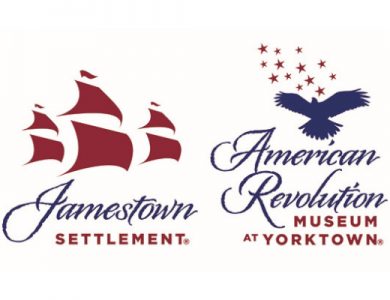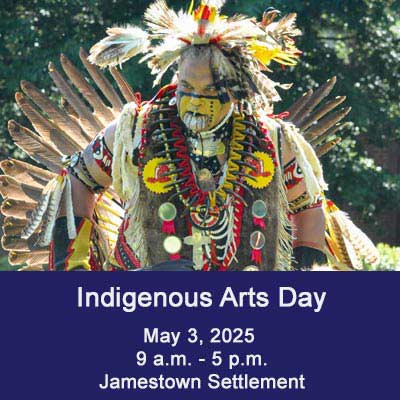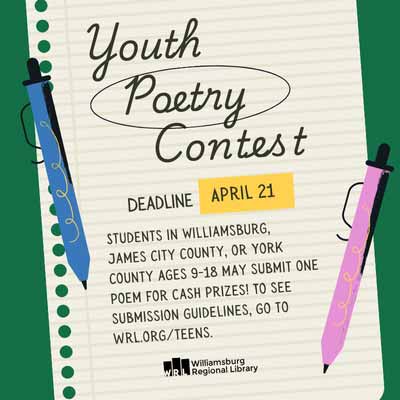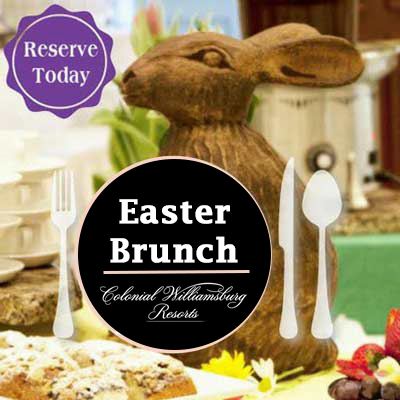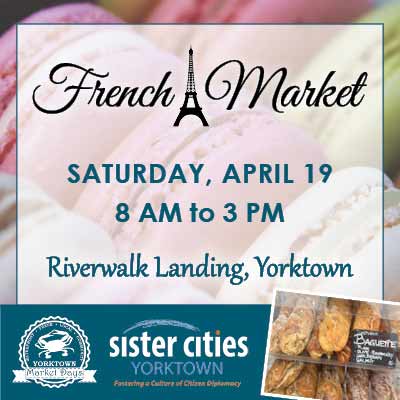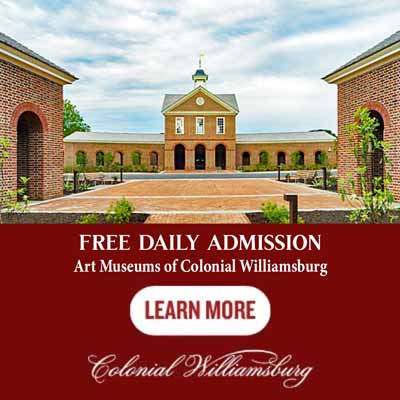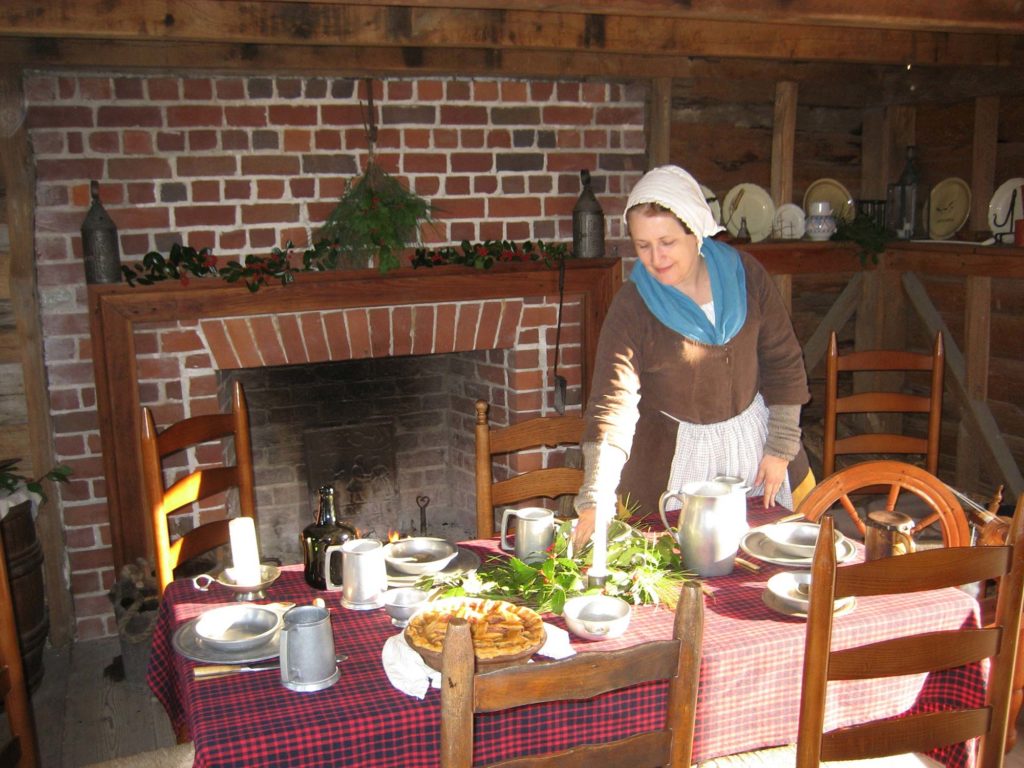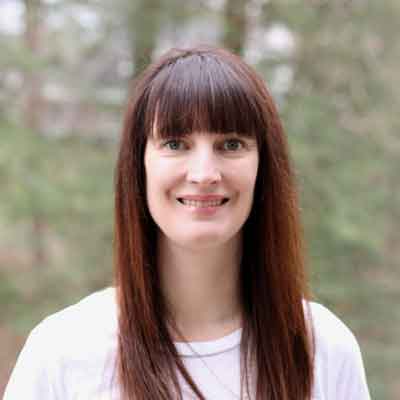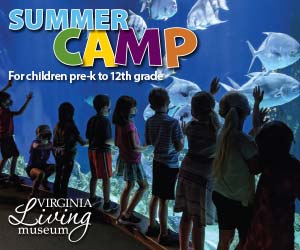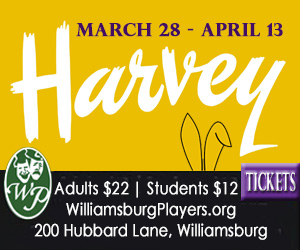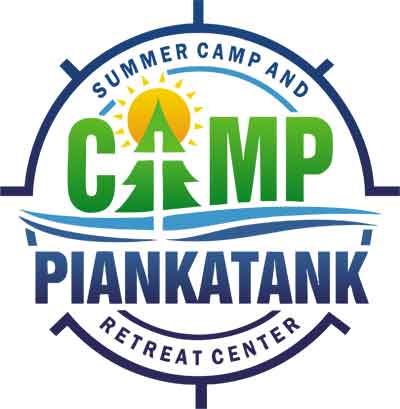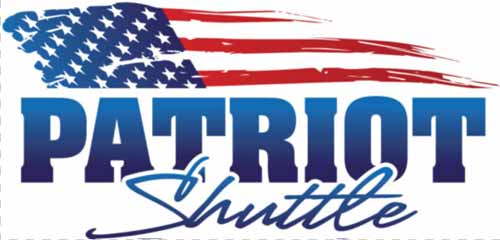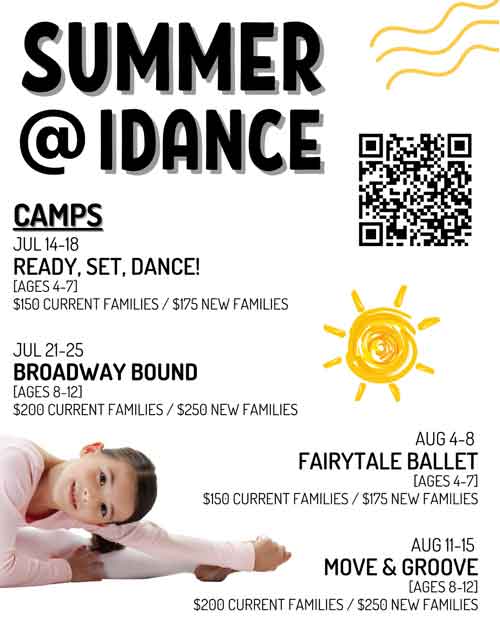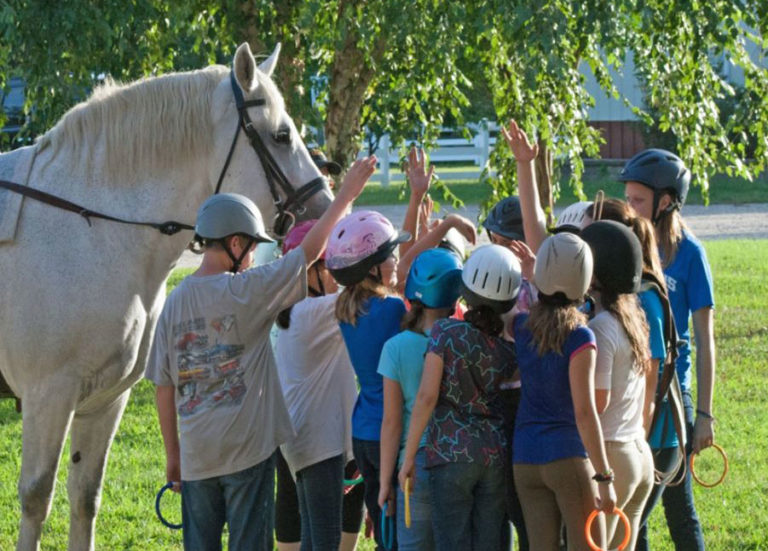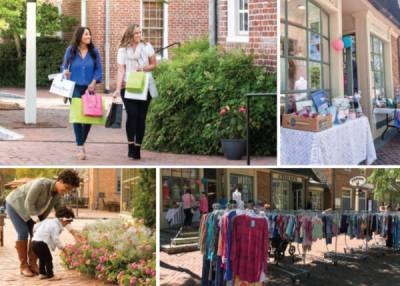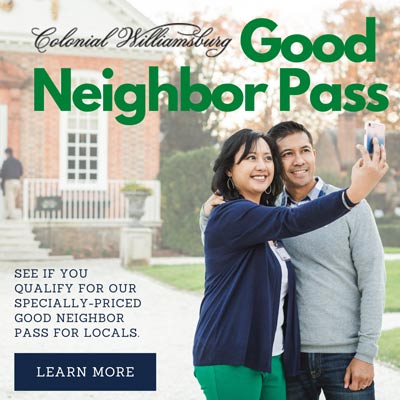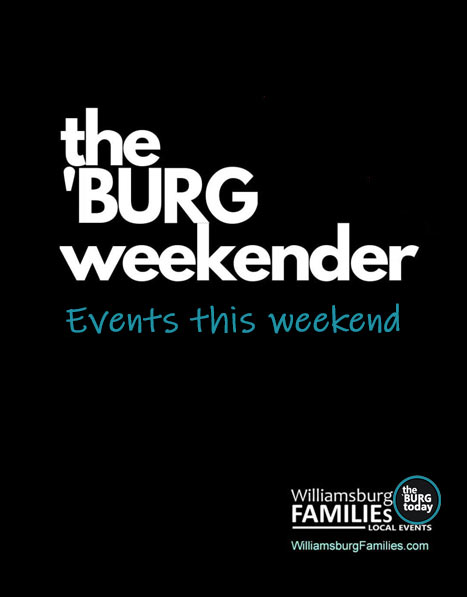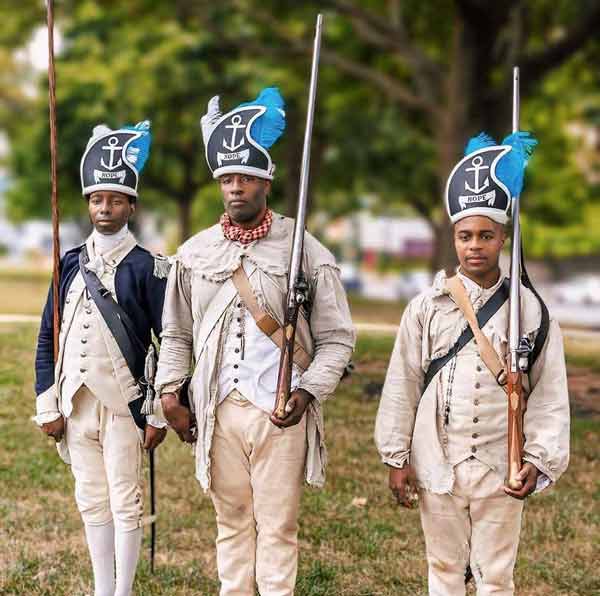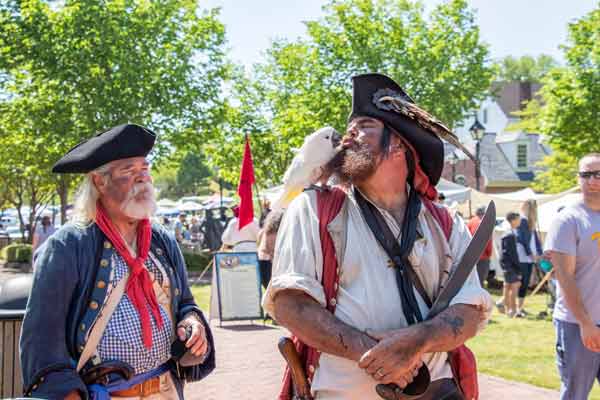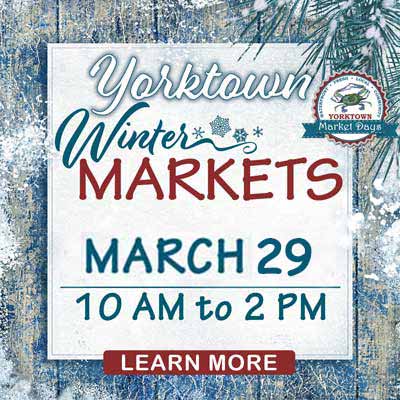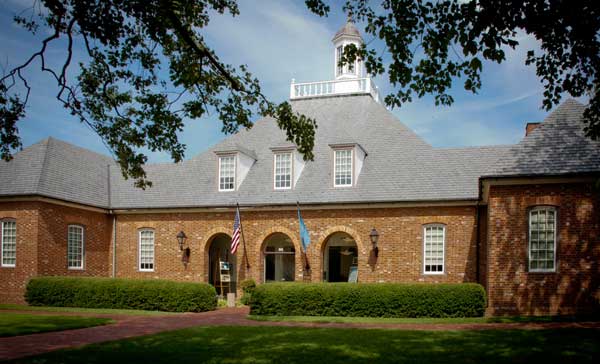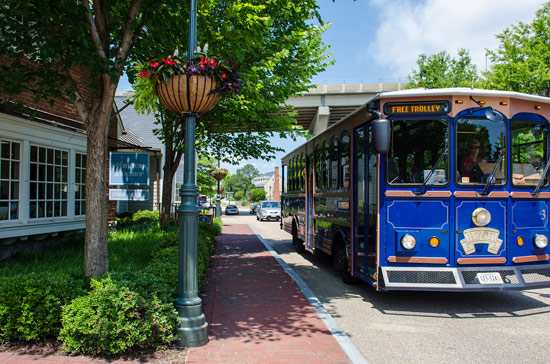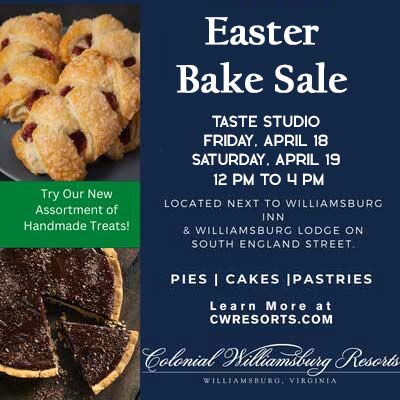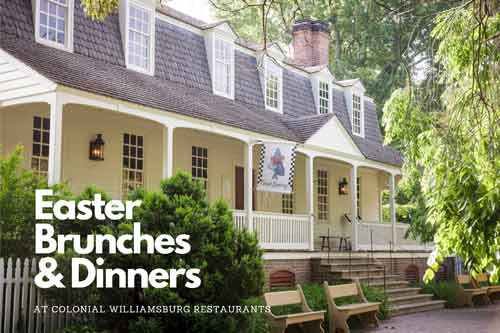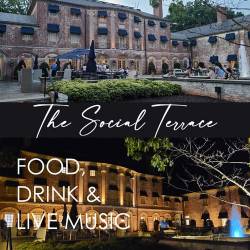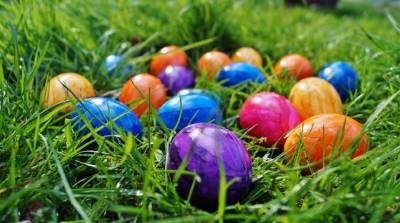Christmastide: A Colonial Christmas Explores Historical Holiday Traditions at Jamestown Settlement & American Revolution Museum at Yorktown
Christmastide at Jamestown Settlement & American Revolution Museum at Yorktown
December 20-31, 2024 (except on Christmas 12/25)
“Wassail! Wassail! All over the town!” ‘Tis the season for centuries-old holiday merriment. Grab your friends and family and plan on attending Christmastide in Virginia. Come have a glimpse of 17th- and 18th-century holiday traditions through festive interpretive programs, fancy cooking, caroling and musical entertainment.
The holiday fun extends daily experiences at both museums, open 9 a.m. to 5 p.m. daily except Christmas Day. Experience immersive exhibition galleries that lead to interpretive activities in re-created outdoor settings reminiscent of early Virginia.
American Revolution Museum at Yorktown
At a Continental Army encampment and Revolution-era farm, visitors can hear accounts of Christmas and winter during the Revolutionary War. Learn about winter in the Continental Army encampment, including how soldiers cooked rations on an earthen kitchen, and observe flintlock musket demonstrations throughout the day.
Figgy pudding, anyone? Historical interpreters at the American Revolution Museum at Yorktown farm demonstrate cooking of festive holiday recipes.
On the Revolution-era farm adorned with greenery, historical interpreters compare and contrast 18th-century holiday traditions with those of modern times and demonstrate a variety of holiday activities, from setting a farmhouse table for a holiday feast and open-hearth cooking of period dishes. Visitors can take part in making traditional holiday pomanders with cloves and oranges.
At 11:30 a.m. and 2:30 p.m. each day, visitors can enjoy the sounds of Christmas through traditional carols and musical performances.
Jamestown Settlement
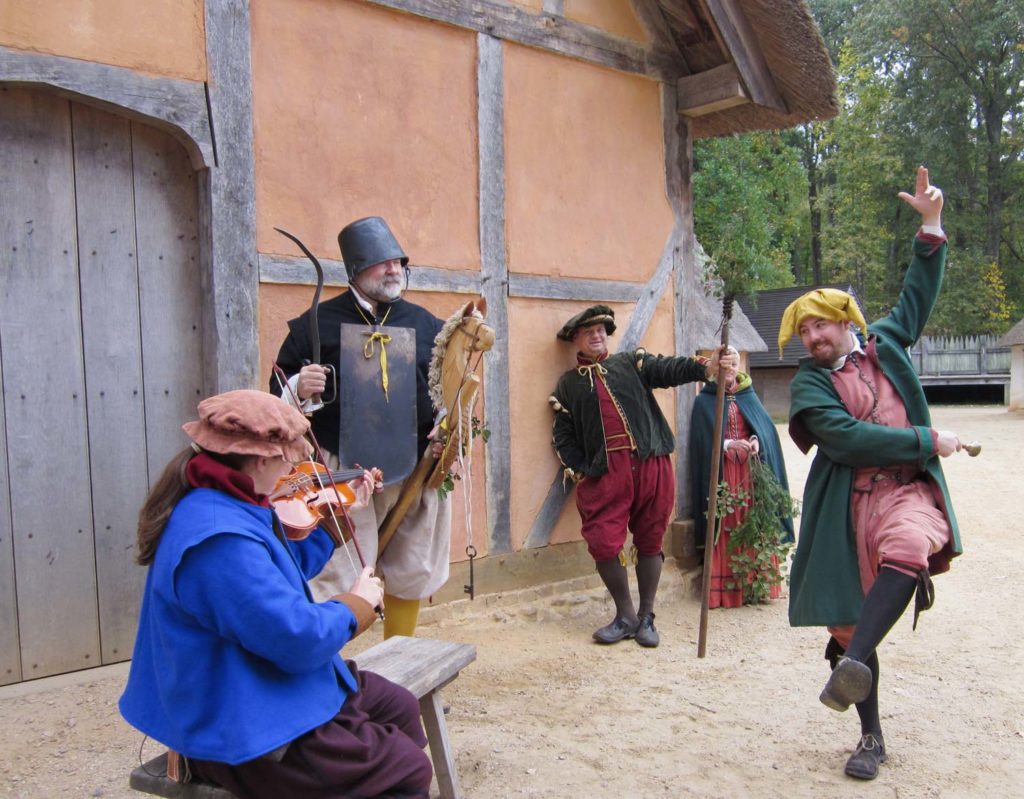
Compare and contrast English Christmas customs of the period with how the season may have been observed in the difficult early years of America’s first permanent English colony through special interpretive programs. In 17th-century England, the holiday season – extending from December 25 to January 6 – was a time of merriment and feasting.
Outdoors, visitors to Paspahegh Town, ships’ pier with 1607 ships and palisaded fort can explore life during the Jamestown colony’s early years. Historical interpreters convey seasonal stories, including the English colonists’ first Christmas at sea in December 1606, and the Virginia Indian hospitality shown to Captain John Smith’s trading party in 1608 during a winter storm.
Make way for the English tradition of the Lord of Misrule during daily appearances at Jamestown Settlement’s fort.
At James Fort, visitors can see wattle-and-daub buildings decorated with greenery and demonstrations of fancy cooking. Paspahegh Town interpreters will demonstrate typical winter activities, including food preservation and hunting techniques.
Learn about the English tradition of the Lord of Misrule, “grand captain of all mischief,” during appearances at 11 a.m. and 2:30 p.m., followed by musical entertainment at 11:30 a.m. and 3 p.m. each day in the re-created church in James Fort (weather permitting).
Admission
Residents of James City County, York County and the City of Williamsburg, including College of William and Mary students, receive complimentary admission with proof of residency.
Event included with museum admission
Christmastide in Virginia is included with museum admission. A value-priced combination ticket to both museums is $34.00 for adults and $17.00 for ages 6-12 (and offers seven days of unlimited admission when purchased online). Children age 5 and under are admitted for free.
Individual admission to Jamestown Settlement is $18.00 for adults and $9.00 for ages 6-12, and to the American Revolution Museum at Yorktown, $20.00 for adults and $10.00 for ages 6-12. Admission for residents of James City County, York County and the City of Williamsburg, including William & Mary students, is free with proof of residency. Parking is free at both museums.
